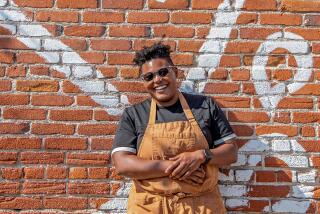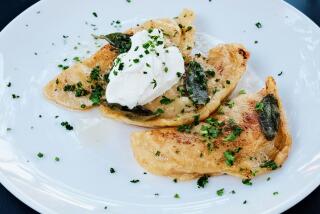In a changing Boyle Heights, a tiny cantina favored by locals reopens to cheers
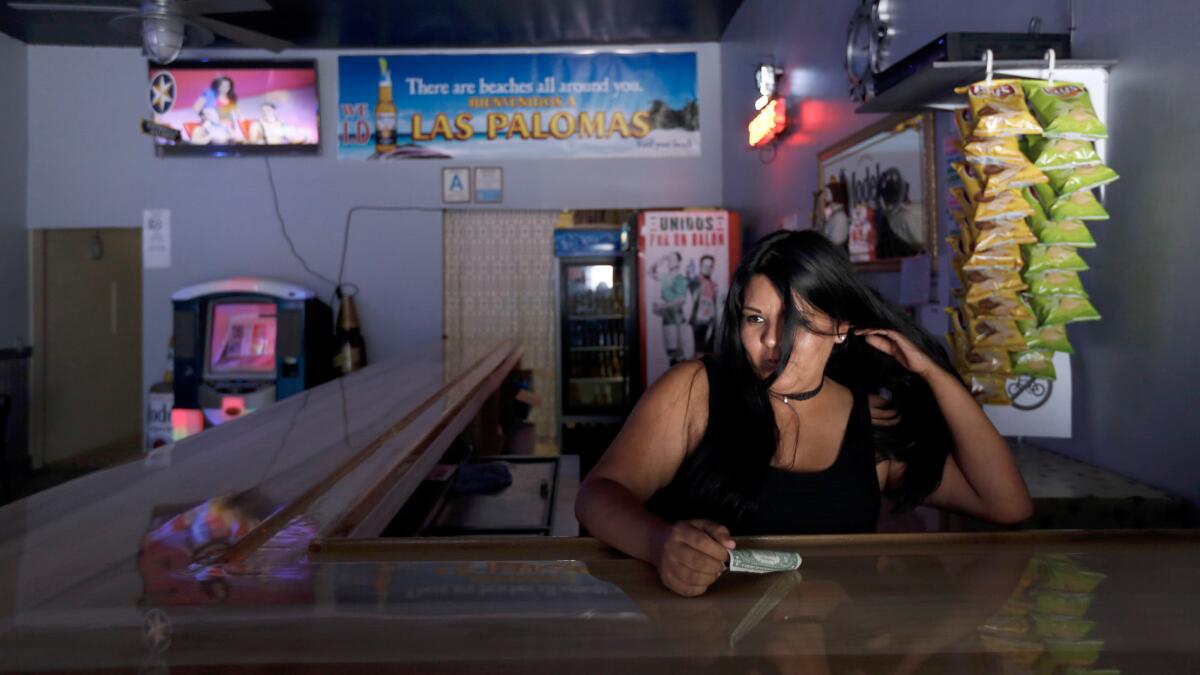
The curtain blowing over the bar door is different, the counter new and the walls freshly painted. But the clientele – working class, mostly Mexican immigrants – of the little Boyle Heights cantina remains the same.
Las Palomas looks pretty good for a place that returned from the dead.
In February, the bar on 1st Street, just yards from Mariachi Plaza and a Gold Line station, looked like another casualty to the forces of change in the Eastside neighborhood.
Located next to a wine bar popular with a younger crowd often made up of the children of immigrants, Las Palomas closed down, forcing its owner, Jose E. Morales, to begin looking for a new location.
He placed items in storage and asked waitstaff to join him wherever he ended up.
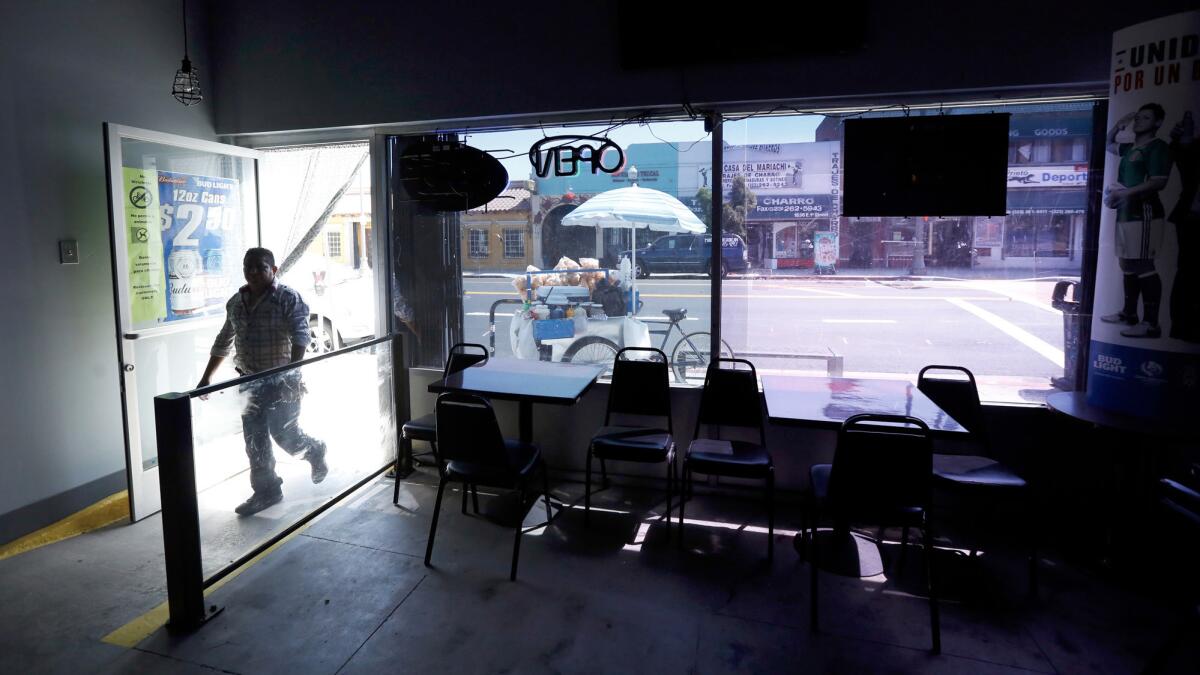
Then Morales reached an agreement with the building owner and reopened the bar in mid-May.
“I was happy and so were they,” Morales said about his customers. “Almost four months closed and I have the opportunity to continue the same as before.”
When Las Palomas closed, it appeared another example of change in a neighborhood still in the early stages of gentrification, or “gentefication,” a term used to describe change spurred by Latinos with higher incomes and education levels, who often have roots in the neighborhood.
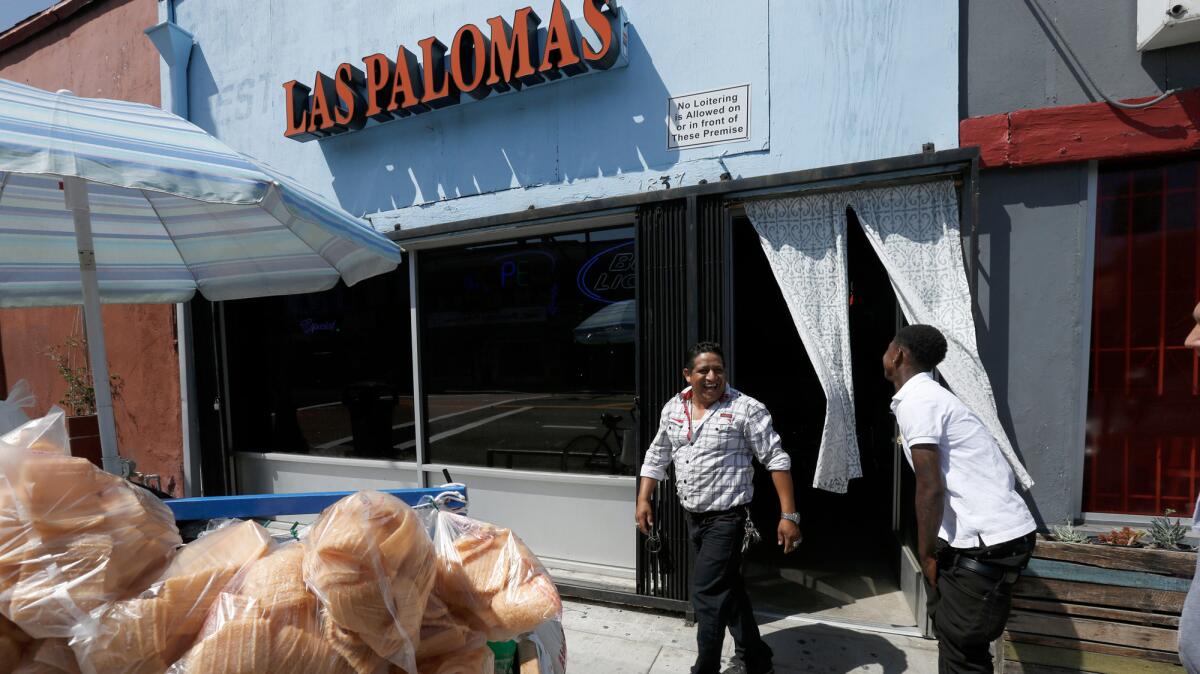
For more than 50 years, the bar has remained in its location. Why the reversal in Las Palomas’ fortunes? No one seemed eager to articulate the exact reasons.
“I am glad we worked out an agreement to have Las Palomas continue doing business in the community,” Conrado Herrera, the owner of the building that houses Las Palomas, as well as the Eastside Luv wine bar, said in a text message.
Morales is well acquainted by now with the crowd who frequents the bar, often traveling musicians and day laborers, virtually all of them Mexican immigrants.
Their entertainment comes from a juke box and the company of friends and waitresses, as they enjoy a cheap Tecate or Bud Light.
Morales said he thinks of his customers as family. When Las Palomas closed, many who had been coming for years shed tears, a waitress said.
On Tuesday morning, Oscar Enriquez, 45, sat at the counter, drinking a Miller Genuine Draft, and chatting with waitress Karla Morales, who is not related to the owner. He’s been coming to the bar about three times a week for more than 10 years – even longer than Jose Morales has owned the place.
When it closed, Enriquez went elsewhere, but the new bar he visited wasn’t the same. When a friend told him Las Palomas would open once more, he told him: “Pues, vamos pa ‘ya.”
“Well, let’s get over there,” he recounted, with a laugh.
“Everybody was happy,” Karla Morales chimed in.
Enriquez noticed that the bar had gotten a makeover, but he said it didn’t change the people.
“The friends are the same,” he said.
Morales said he wasn’t sure what the future held for Las Palomas, but he has hopes to stay in the location as long as he can.
“I want to retire working here,” he said. He looked around the freshened-up bar and patted a table for emphasis: “Right here.”
MORE LOCAL NEWS
Surfer gang’s Lunada Bay ‘fort’ must go, city staff says
Mental health literacy may be a roadblock for Vietnamese Americans seeking help, study shows
How one Boyle Heights market is trying to be ‘something that hipsters are into’
More to Read
Sign up for Essential California
The most important California stories and recommendations in your inbox every morning.
You may occasionally receive promotional content from the Los Angeles Times.

